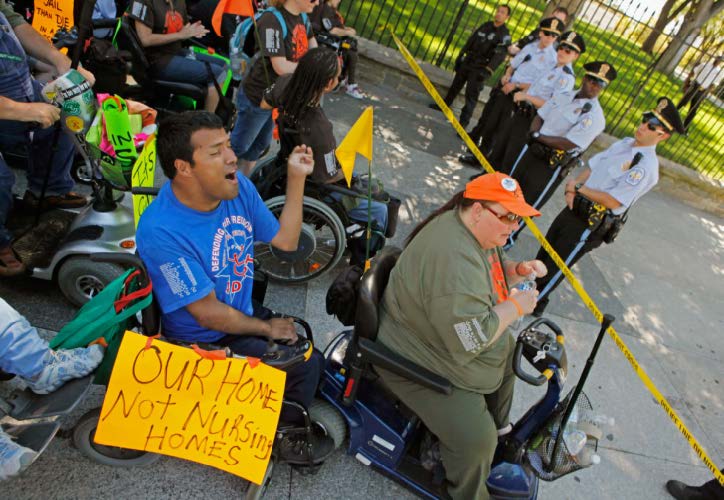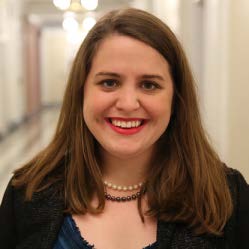CONNECT AND DISCOVER Join EP's Facebook Community

EP's revamped Facebook page welcomes you to share stories, discover resources and connect with the special needs community. Parents and families with members with special needs benefit greatly from meaningful interaction with peers facing the same challenges and joys. Facebook has provided the EP readership community with a convenient and effective platform to communicate, ask questions, promote events and share special moments.
Connect, Share and Discover with EP facebook.com/exceptionalparentmag
Visitors can access the latest news and articles from recent issues of EP Magazine, and provide feedback and insight of their own. EP's Facebook page an open community group for parents, grandparents, family and friends of people with special needs family members. It's an ideal place for both parents and professionals to share information and resources.
Parents, teachers, academics and professionals that are willing to help each other by sharing knowledge and resources are a vital part of the EP community. Like us today!
THE DISABILITY INTEGRATION ACT GAINS MOMENTUM WITH SUPPORT OF NEW STATE DELEGATIONS
The Disability Integration Act (DIA) continues to gain momentum as ADAPT and other disability rights advocates work with House Leadership to pass the bill during the week of the 29th Anniversary of the Americans with Disabilities Act on July 26, 2019.
The additions of Senator Thomas Carper and Congressman Richard Neal mean that the Delaware and Massachusetts congressional delegations join those from Colorado and Vermont in their unanimous support for the bill and the right of elderly and Disabled Americans to live in freedom instead of being forced into unwanted institutionalization.
The bipartisan, bicameral legislation which is designed to ensure the rights of people with disabilities to live in the community already enjoys the support of every major national disability organization. The bill has widespread support among aging, social justice and faith-based organizations, including AARP.
Since its introduction in January, DIA has secured a total of 139 co-sponsors in the House and 26 co-sponsors in the Senate. Organizers from ADAPT see the support for the bill growing as entire delegations declare their support for the legislation. "We are so proud that all of Delaware's legislators support our right to be free," said ADAPT Delaware organizer Daniese McMullin-Powell. "When people understand what DIA does and why it is needed, they line up to support it."
Congressman Neal's co-sponsorship means the bill only needs the support of 91 more Democrats in the House in order to bring it to the House floor for a vote this July. "Having the entire Massachusetts delegation support the bill keeps us on schedule for that important vote on the week of July 26th", said Massachusetts ADAPT organizer Rhoda Gibson. "We're going to make history with 'Disability Freedom Day' by passing DIA when thousands of Disabled Americans are on the Hill!"
In this age of partisan politics, we are seeing legislators from both sides of the aisle DIA is an opportunity for bipartisan work in Congress," said ADAPT organizer Bruce Darling. "We are going to pass this bill not because it serves one party's interests, but because no one can deny that Disabled Americans deserve to live in freedom. Seeing entire state delegations support the bill only convinces us of that even more."
" Groups like ADAPT which have worked for years secure the constitutional and civil rights of disabled Americans are pushing Congress to pass the legislation now "We have waited 29 years for our freedom we are tired of waiting we need DIA passed now," said ADAPT organizer Dawn Russell.

CALL TO ACTION: Protesters from ADAPT block the sidewalk near the White House in Washington, DC., organizing to ensure that people with disabilities can live in the community rather than be forced into nursing facilities and other institutions.
ABOUT ADAPT
For decades ADAPT has worked to secure for Disabled Americans the same rights and liberties enjoyed by their non-disabled neighbors. ADAPT strategies include using civil disobedience if necessary as a tool to gain public attention, so that they can change laws, policies, and services affecting persons with disabilities. Learn more about ADAPT's history and activities at adapt.org, on social media with the National ADAPT Facebook and Twitter pages. Also, under the hashtag #ADAPTandRESIST.
MARIA TOWN NAMED AAPD'S PRESIDENT AND CEO
The Board of Directors of the American Association of People with Disabilities (AAPD) announced that Maria Town has been selected as the new President & CEO.
Maria Town, a well-recognized disability rights advocate, will begin her new position on July 15, 2019. APD Board Chair, Ted Kennedy, Jr., said he is excited about the future of AAPD with Town at the helm. He went on to say that he is "incredibly grateful to our current CEO, Helena Berger, for her leadership and dedication to AAPD. She has created an environment that will allow the new CEO, Maria Town, to have maximum impact at AAPD in 2019 and beyond."
Town is currently the Director of the City of Houston Mayor's Office for People with Disabilities, where she serves as the primary liaison between the more than half million people with disabilities in the greater Houston area, the Mayor, Houston City Council, and other key city, state, and national leaders. Town quickly became an expert on emergency response having begun the position shortly before Houston felt the impacts of Hurricane Harvey.

MARIA TOWN: "I am honored to contribute to the progress of inclusion & equity nationwide."
Prior to that, she served as the Obama White House Senior Associate Director & Disability Community Liaison in the Office of Public Engagement. While there, Town increased the White House reach to the disability community by more than 700%. She also engaged with leadership from the nation's premier disability and civil rights organizations, including AAPD, to provide White House Senior Advisors with daily briefings on key issues related to Americans with disabilities, seniors, cabinet agencies, and the Obama Administration's place-based initiatives.
Upon being named President & CEO, Town stated, "I am incredibly honored to be the next CEO of AAPD. I look forward to working alongside our committed board, staff, and stakeholders to ensure that AAPD represents and engages our diverse community in the collective fight for equal access, integration, and full inclusion for Americans with disabilities."
Americans with disabilities." Town is the recipient of many awards and honors including the Henry Viscardi Achievement Award, Texas Governor's Committee on People with Disabilities Martha Arbuckle Award, Susan Daniels Mentoring Hall of Fame Honoree, and an AAPD Paul J. Hearne Leadership Award Finalist. She began her professional disability rights career as a disability advocate in a policy advisor role at the Office of Disability Employment Policy at the Department of Labor. She received her Bachelor of Arts degree from Emory University.
MDA CELEBRATES FDA APPROVAL OF ZOLGENSMA FOR TREATMENT OF SPINAL MUSCULAR ATROPHY
The Muscular Dystrophy Association (MDA) celebrated on May 24th the decision by the U.S. Food and Drug Administration (FDA) to grant approval of Zolgensma (onasemnogene abeparvovac-xioi), the first gene therapy for a neuromuscular disease.
Zolgensma is a one-time intravenous (into the vein) infusion for the treatment of pediatric patients less than two years of age with spinal muscular atrophy (SMA) with bi-allelic mutations in the survival motor neuron 1 (SMN1) gene, including those who are pre-symptomatic at diagnosis.
SMA is the leading genetic cause of infant death. Zolgensma is designed to target the genetic root cause of SMA by delivering the survival motor neuron gene (SMN), which is missing or mutated in SMA. Zolgensma will be made available in the United States and will be marketed by AveXis, a Novartis company.

LIFE-ALTERING: Zolgensma is designed to address the genetic root cause of SMA by replacing the defective or missing SMN1 gene to halt disease progression with a single, one-time infusion.
Approval of the therapy marks another historic achievement for the SMA community. Now, in addition to Spinraza – the first SMA disease-modifying therapy, which was approved in December 2016 for SMA – patients will have access to another promising therapy.
For decades, MDA has funded research aimed at the discovery of genes causing neuromuscular disease and has supported work to develop therapies that address the root cause of disease. Zolgensma is only the second gene therapy approved by the FDA to treat any disease, placing the field of neuromuscular disease at the forefront of genetic medicine. "Zolgensma is poised to be another life-altering therapy for the SMA community," says MDA President and CEO Lynn O'Connor Vos. "It represents a breakthrough toward the promise of safe and effective gene therapies, and it may catalyze the development of other gene therapies to treat a range of rare neuromuscular diseases."
Zolgensma may be the first of many gene therapies targeting the genetic root cause of disease, highlighting the importance of years of investment by MDA and others into gene identification and research unlocking the cause of disease. In addition, MDA has funded landmark research focused on developing and refining gene delivery tools and has supported the work to establish protocols for safe and effective gene therapy clinical trials. While this may be the first gene therapy for treating neuromuscular disease, the increasing pace of drug development holds immense promise for the future of the field. In the past decade alone, seven therapies for treating neuromuscular diseases have been approved by the FDA.
The Muscular Dystrophy Association is committed to transforming the lives of people affected by muscular dystrophy, ALS, and related neuromuscular diseases. This is done through innovations in science and innovations in care. For more information visit mda.org •